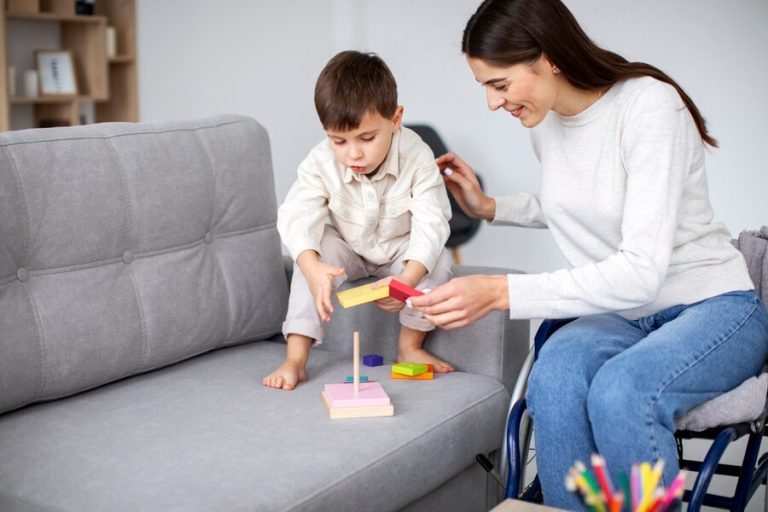Autism Spectrum Disorder (ASD) presents unique challenges for individuals and their families, but Applied Behavior Analysis (ABA) therapy has emerged as one of the most effective interventions to support individuals in developing essential life skills. One of the key areas where ABA therapy can make a significant impact is in the development of daily living skills, which are vital for achieving greater independence and improving quality of life.
What Are Daily Living Skills?
Daily living skills (DLS) refer to the abilities necessary for individuals to manage their day-to-day activities. These include tasks such as personal hygiene, dressing, feeding, grooming, communication, and even managing money or time. For children with autism, these skills may not develop as naturally as they do for neurotypical children. As a result, many children with autism benefit from structured and systematic support to learn and refine these skills.
The Role of ABA Therapy in Daily Living Skills Development
ABA therapy is a scientific approach that uses positive reinforcement to teach new behaviors and skills. It breaks down complex tasks into smaller, manageable steps, and uses consistent reinforcement to encourage progress. When it comes to developing daily living skills, ABA therapy is especially effective because it is tailored to the unique needs of the child, promoting individualized learning experiences that are both engaging and achievable.
Skill-Based Treatment ABA: A Customized Approach
One of the core principles of ABA therapy is that it is skill-based. This means that treatment is designed to focus on teaching specific, measurable skills that can help children develop independence. With skill-based treatment ABA therapists create a customized learning plan for each child, considering their current abilities, challenges, and goals. This personalized approach ensures that each skill is taught in a way that the child can understand and master at their own pace.
For instance, in teaching a child to brush their teeth, a therapist may break down the steps involved into smaller tasks, such as picking up the toothbrush, applying toothpaste, and brushing in a circular motion. Positive reinforcement, such as verbal praise or a small reward, is used to encourage the child to continue practicing and improving the skill.
Targeting Essential Daily Living Skills
ABA therapy focuses on teaching a wide range of daily living skills that help children navigate everyday tasks and increase their independence. Some key areas that ABA therapy addresses include:
- Personal Care and Hygiene: ABA therapy helps children learn important self-care tasks such as bathing, brushing teeth, and dressing appropriately. These tasks are often broken down into smaller steps and practiced in a consistent manner to build mastery.
- Feeding Skills: Learning how to eat independently, use utensils correctly, and feed oneself can be a challenge for children with autism. ABA therapy works by reinforcing behaviors that promote independent eating, such as holding a spoon, chewing food properly, and drinking from a cup.
- Social and Communication Skills: ABA therapy emphasizes the development of social interactions and communication skills, which are crucial for building relationships and integrating into community settings. Whether it’s teaching a child how to ask for help, initiate a conversation, or express their feelings, ABA provides structured support to develop these social skills.
- Safety Skills: Children with autism may struggle with understanding potential dangers or knowing how to react in emergencies. ABA therapy can help teach children essential safety skills such as how to cross the street safely, recognize hazards, and follow safety protocols.
- Household Chores and Time Management: ABA therapy can also target practical skills like organizing tasks, following routines, and completing household chores. With the help of ABA, children can develop strategies for managing time and staying on task, which can contribute to greater independence as they grow older.
Promoting Generalization and Real-World Application
One of the strengths of ABA therapy is its emphasis on generalization—the ability to apply learned skills in different settings and situations. For example, a child might practice brushing their teeth in a therapy room, but ABA therapy also ensures that the skill transfers to real-world settings, such as at home or at school. This is achieved through repeated practice in various environments and with different people, helping the child feel more confident in their abilities.
Conclusion
ABA therapy is a powerful tool for supporting the development of daily living skills in children with autism. Through a skill-based treatment ABA approach, therapy helps break down complex tasks into manageable steps, reinforcing positive behaviors and fostering greater independence. By focusing on essential skills such as personal care, feeding, social communication, and safety, ABA therapy empowers children to navigate the world more confidently and build the foundation for a successful and fulfilling life.
Meet the Experienced ABA Therapists at Capable Cubs ABA Therapy Center in Bergen County
At Capable Cubs, we believe that selecting an ABA therapy center near you is an incredibly critical decision with lasting consequences. As a leading ABA services provider in Bergen County, we encourage parents to always ask questions and evaluate our services and therapists without any hesitation.
Our team of highly trained ABA clinicians includes experienced and qualified BCBAs and RBTs who specialize in combining various ABA methods for providing the most effective treatment to your child with ASD. We create a structured roadmap for every child, including extensive initial assessments, comprehensive ABA treatment plans, critical learning milestones and effective discharge plans to successfully transition out of our care. Our goal is to help your child build the skills needed to increase independence, build meaningful relationships, and connect with their community.
Select an ABA therapy center that works best for your family’s priorities, needs, and goals. Get in touch with the Autism specialists at Capable Cubs. Call 201-786-6280 or contact us online to learn more about our quick intake process.
